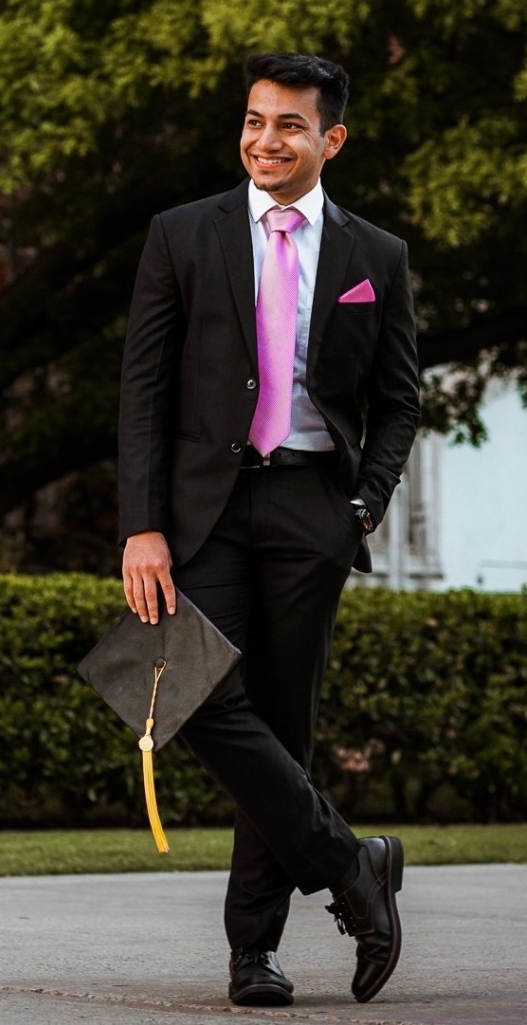Having witnessed disparity firsthand, Nishit Garg’s career goal is clear – to advocate for better healthcare for rural and underserved communities.
Garg, who grew up in India before moving to Tulsa, Oklahoma, shared he began to think about healthcare disparity after his uncle had a stroke. His uncle ended up having to drive six hours to receive the proper care after his local doctor dismissed his symptoms as psychological. Now, he lives with speech and cognitive disabilities that Garg explained could possibly have been avoided if he received the correct medicine earlier.
While his uncle’s story occurred in India, Garg has witnessed a similar lack of healthcare access throughout rural Oklahoma. He decided it was an area on which he wanted to focus while working in a medical clinic in Tulsa. Patients would come into the clinic from rural towns and smaller cities in the area, and some have pre-existing conditions but had not seen primary care doctors in a decade. Currently, Garg works for a retina specialist and has seen similar stories, including one patient who for years has had retinal hemorrhages and been blind but has not visited a specialist because of how far the trip is to Oklahoma from where they live.
“If the most developed country in the world has this sort of disparity, then the least we can do is lead by example,” Garg said. “I was like, ‘This has to be solved. This has to be worth looking at.’”
After moving to Tulsa, where his cousin lives, Garg worked for a while before starting classes at Tulsa Community College. In spring 2018, he transferred to OU, where he studied biology on a pre-medicine track, with a minor in human relations. Garg has known since about the ninth grade that he wanted to attend medical school someday.
“It was sort of a combination of what I’m good at academically and also the empathy I have for people who are suffering,” explained Garg, who was named this year’s outstanding senior for the College of Arts and Sciences. “Medicine is where I feel like I can put certain aspects of my personality to the best use.”
In August, Garg will start at the OU College of Medicine in Oklahoma City. While he is unsure of what specialist he would like to enter and plans to find that along the way during his time in medical school, Garg mentioned infectious disease as one area he is interested in. He’s gained valuable experience by volunteering at Norman Regional Hospital and at an infectious disease clinic in Tulsa. Garg also served as a governing board member for the hospital in the rural community of Prague, Oklahoma.
Garg chose OU in part because he had heard great things about the university. He was also drawn to the campus once he learned about the diversity on campus and the various initiatives OU has, like the strong UWC Scholars program, ties to Native American culture, and more.

“I’ve learned I can be a better and more involved citizen. I was also made more aware of how to treat everyone with different backgrounds and cultures with respect.”
- Nishit Garg
Along with his medical school preparation, Garg was also a big proponent for diversity and inclusion on OU’s campus. He was active on the International Advisory Committee (IAC) and helped organize Eve of Nations, an annual event that showcases various cultures.
“It was an enriching experience,” said Garg of his time on IAC. “I met people from countries that I hadn’t even heard of, to be frank. That blend of different cultures coming together and working together was amazing.”
He also served as the International Student Liaison within the Student Government Association (SGA) executive cabinet. Through this newly created position, Garg focused on making sure OU is building a “very nurturing, diverse environment that welcomes everyone.”
During his time at OU, Garg said he has become more aware of what’s within his reach as an individual. For example, through SGA, Garg has helped advocate for more halal, vegan, and gluten-free options for students. Being able to share concerns that students are facing with university administration has shown Garg that he has a voice.
“I’ve learned I can be a better and more involved citizen,” Garg said. “I was also made more aware of how to treat everyone with different backgrounds and cultures with respect.”